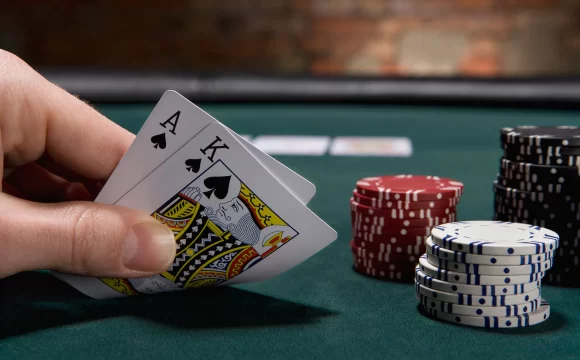Online poker is an exhilarating casino-like world filled with unique player styles and tournament structures, necessitating a keen understanding of these factors for success in this ever-evolving environment. Resource management plays an essential role here.
Home Poker System makes organizing poker league games and tournaments much simpler for its users, enabling them to schedule games, send invitations with RSVPs, view detailed stats, customize points and payouts, customize payouts as desired and export results easily.
Game rules
No matter your level of experience in poker, knowing the rules of the game is essential for making informed decisions when playing poker. This includes understanding the hierarchy of hands, checking, calling, raising and folding as well as blind increases rules. Furthermore, understanding different tournament formats will enable you to make well-informed choices during play.
A good online poker site will have an extensive set of rules and an organized tournament schedule. Many also provide players with an option to reserve tables specifically for league play; using this feature allows players to avoid competition from outside parties while focusing on your league’s gameplay.
Some poker leagues award a champion and trophy at each tournament played; other leagues use a points system which awards points based on how participants finish in tournaments; this can be an effective way of motivating league participants. For more information about point systems visit HPT Forums Poker League Rules & Point Systems topic.
Betting intervals
Betting intervals in poker refer to the minimum and maximum amounts that players are permitted to wager during each betting interval. These amounts may be fixed or determined as a percentage of the value of particular chips being used; in either case, game play pauses during these betting intervals for players to call/check/raise with later rounds seeing doubled bet sizes being placed by them.
This type of system is very straightforward to set up and requires little administrative support, while also eliminating many of the problems associated with linear-based points systems. I suggest instead employing a formula for awarding league points – Dr. Neau’s Tournament Formula may serve as an example here.
India’s premier poker league will deliver an exhilarating and thrilling 2024 edition with teams competing across five cities for a massive prize pool of Rs2Cr. Keep up-to-date by following Pocket52 and PSL for updates.
Adapting to the changing dynamics of the game
The online poker world is an exhilarating, casino-like space filled with diverse player pools and tournament structures. Navigating this digital realm requires an in-depth knowledge of its rules, effective strategies, and mastering key poker concepts such as hand rankings, betting intervals and table etiquette if one wishes to succeed at this game.
Simply award league points proportionately with purse distribution (% of payout). For example, if your tournament awards 50 league points to first place finishers and 30% each to second and third, give each player that amount as league points for scoring their performance in your tournament.
One more sophisticated method involves employing a formula to award league points that takes into account player counts, buyin costs and final finishes in each game – you can find some such formulas on Dr. Neau’s Tournament Formula topic of HPT Forums. Or alternatively you may prefer using an poker scoring app which offers scheduling games, sending invites with RSVPs, viewing player stats in detail as well as customizing points/payouts/exporting results features.
Reading opponents
Understanding your opponent is central to success in poker, and this requires closely observing their betting patterns and timing, looking out for consistent behavior patterns, as well as deciphering any tells that reveal hand strength or reveal patterns of weakness or playability.
Online, you can gain a lot of information about players by studying their actions and using available tools – such as player statistics or HUDs – including statistics on individual players or bet sizing and timing observations; quick auto-action may indicate confidence while delay could indicate weak hands.
Learning to read your opponents is one of the key ways to hone your online poker skills, yet don’t rely solely on tells for accurate prediction and harder bluffing by your opponent. Instead, focus on developing an overall strategy that helps you win as many hands possible!









